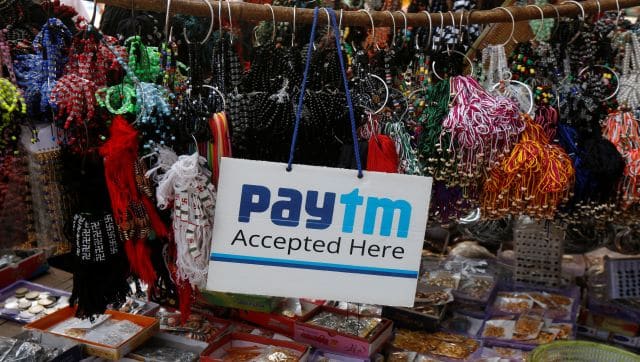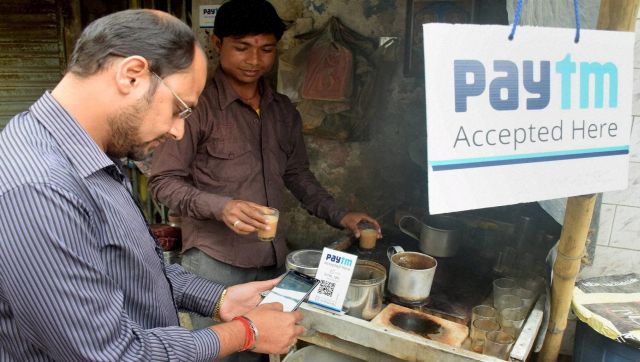In India, digital payments have become a way of life and Paytm is among the most common payment gateway. However, in a big setback to Paytm Payments Bank, the Reserve Bank of India (RBI) has barred it from offering its core services from March. This includes accounts and payments. The move will essentially restrict the fintech company’s operations and impact its huge customer base. While customers are allowed to withdraw and use the balance amount in wallets, the central bank has ordered Paytm Payments Bank to stop accepting fresh deposits in its accounts or wallets after 29 February. “No further deposits or credit transactions or top ups shall be allowed in any customer accounts, prepaid instruments, wallets, FASTags, NCMC cards, etc. after February 29, 2024, other than any interest, cashbacks, or refunds which may be credited anytime,” Yogesh Dayal, a chief general manager with the central bank, said in a press statement on Wednesday. We take a look at the RBI’s direction and what this means for Paytm users. Why has RBI imposed restrictions on Paytm Payments Bank? Paytm was the leader when India’s fintech revolution started. But
Paytm Payments Bank ran into trouble soon after and has been under the RBI scanner since 2018. The central bank has not specified reasons for its latest action against Paytm, but it could be because of RBI’s concerns on KYC compliance and IT-related issues, sources were quoted as saying by The Indian Express. Paytm Payments Bank and its parent company One97 Communication have come under scrutiny for the “purported lack of requisite information barriers within the group and data access to China-based entities that were indirect shareholders in the payments back through their stake in the parent company”, the report says. An alleged persistent “non-compliance” prompted the central bank to take the latest action against Paytm.
**Also read: Paytm's Vijay Shekhar Sharma's journey from Aligarh to Alibaba** What does the RBI order say? The central bank has barred the Paytm Payments Bank from offering all of its main services. It cannot accept deposits or top-ups in wallets in any customer account. It has imposed restrictions on prepaid instruments, FASTags (the electronic toll collection system), and the National Common Mobility Card (NCMC), after 29 February. The RBI said that the Paytm Payments Bank should not offer any other services like fund transfers such as AEPS, IMPS, bill payments and UPI facilities. The settlement of all pipeline transactions and nodal accounts, regarding transactions initiated on or before February 29, should be completed by 15 March. No transactions will be permitted after the said deadline. [caption id=“attachment_13676622” align=“alignnone” width=“640”] RBI’s order will essentially restrict the fintech company’s operations and impact its huge customer base. File image/Reuters[/caption] How will the RBI direction affect customers? Customers can only add funds to their Paytm Payments Bank until 29 February. After that, they cannot add any money to their savings bank account. No debit or credit transactions including those through wallets will be allowed. Users will not be able to receive or send any money from their accounts. They will also not be able to make any money transfers or bill payments or carry out UP transactions. However, the RBI allows exceptions for interest, cashbacks, or refunds to be credited at any time. The RBI directive affects Paytm’s banking operations but it does not mention if transactions made via external banks will be affected. This means you will be able to make UPI payments through Paytm if it is linked to an external bank, according to a report by India Today. However, since Paytm Wallet is powered by Paytm Payments Bank you may not be able to use the wallet. “The RBI’s move primarily targets Paytm’s banking operations, allowing customers to still utilise Paytm for digital payments as long as their account remains connected to an external bank, even after February 29,” Gaurav Goel, founder-director, Fynocrat Technologies, was quoted as saying by India Today. [caption id=“attachment_13676662” align=“alignnone” width=“640”]
 According to the Paytm Payments Bank website, it has over 100 million know-your-customer (KYC) verified customers. This order will impact these customers. File image/Reuters[/caption] Can customers use or withdraw balances in Paytm instruments? According to the RBI order, the withdrawal or utilisation of the balance money from their Paytm accounts including savings bank accounts, current accounts, prepaid instruments, FASTags, and NCMC are allowed without any restrictions, “up to their available balance”. The RBI does not mention other services like loans, mutual funds, bill payments, digital gold, and credit cards. How many customers are likely to be affected? According to the Paytm Payments Bank website, it has over 100 million know-your-customer (KYC) verified customers. “We are also the largest issuer of FASTag with over 8 million FASTag units issued,” it says. In December, 57 million transactions were reported through Paytm Fastags, among the highest in the industry. What has Paytm Payments Bank said? Paytm Payments Bank has said it is taking “immediate steps” to comply with RBI’s directions. One 97 Communications Limited (OCL), as a payments company, works with various banks (not just Paytm Payments Bank), on various payments products, the fintech company said in a statement on Thursday.
According to the Paytm Payments Bank website, it has over 100 million know-your-customer (KYC) verified customers. This order will impact these customers. File image/Reuters[/caption] Can customers use or withdraw balances in Paytm instruments? According to the RBI order, the withdrawal or utilisation of the balance money from their Paytm accounts including savings bank accounts, current accounts, prepaid instruments, FASTags, and NCMC are allowed without any restrictions, “up to their available balance”. The RBI does not mention other services like loans, mutual funds, bill payments, digital gold, and credit cards. How many customers are likely to be affected? According to the Paytm Payments Bank website, it has over 100 million know-your-customer (KYC) verified customers. “We are also the largest issuer of FASTag with over 8 million FASTag units issued,” it says. In December, 57 million transactions were reported through Paytm Fastags, among the highest in the industry. What has Paytm Payments Bank said? Paytm Payments Bank has said it is taking “immediate steps” to comply with RBI’s directions. One 97 Communications Limited (OCL), as a payments company, works with various banks (not just Paytm Payments Bank), on various payments products, the fintech company said in a statement on Thursday.
Update: Paytm Payments Bank Limited, an associate of Paytm receives RBI directions. Paytm to expand its existing relationships with leading third-party banks to distribute payments and financial services products.
— Paytm (@Paytm) January 31, 2024
Read more here: https://t.co/NsPCOxp6VJ pic.twitter.com/fQjozyR11m
“We now will accelerate the plans and completely move to other bank partners. Going forward, OCL will be working only with other banks, and not with Paytm Payments Bank Limited. The next phase of OCL’s journey is to continue to expand its payments and financial services business, only in partnerships with other banks,” the statement read. [caption id=“attachment_13676692” align=“alignnone” width=“640”] A man rides a bicycle past a bus stop with Paytm advertisements in Mumbai. According to Paytm, it expects a “worst case impact” of Rs 300 crore to Rs 500 crore to its annual earnings from RBI’s order. File image/Reuters[/caption] How will the RBI order affect Patym? According to Paytm, it expects a “worst case impact” of Rs 300 crore to Rs 500 crore to its annual earnings from RBI’s order. However, the company said it expects to “continue on its trajectory” to improve its profitability, reports NDTV. What are RBI’s earlier actions against Paytm? In October last year, the RBI slapped a fine of Rs 5.39 crore on Paytm Payments Bank because of deficiencies in regulatory compliance. In March 2022, it directed Paytm Payments Bank to stop onboarding new customers immediately. A Comprehensive System Audit report and subsequent compliance validation report of the external auditors revealed persistent non-compliance and continued material supervisory concerns in the bank, warranting further supervisory action, the RBI said, without disclosing details. In 2018, the RBI made observations about the processes the company followed to get new users, especially on KYC notes. The central bank was also concerned over the close relations between Paytm Payments Bank and One97 Communications. With inputs from agencies


)

)
)
)
)
)
)
)
)



